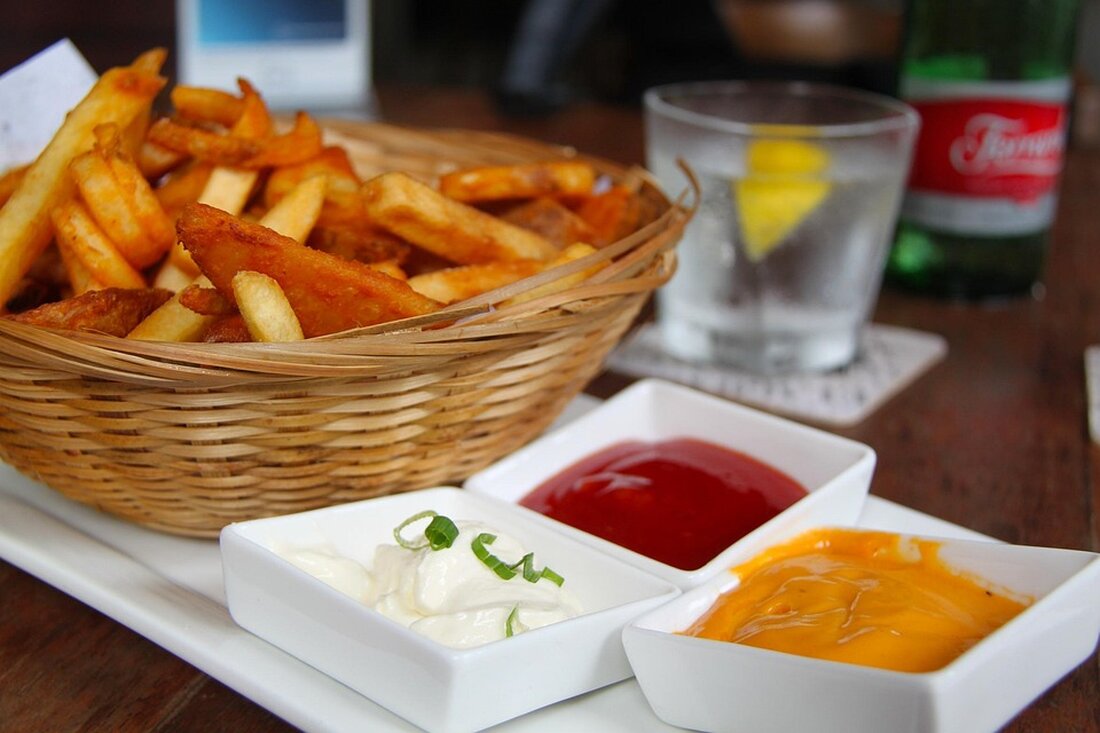Key technology for chips: centrally in the AI race USA vs. China
Key technology for chips: centrally in the AI race USA vs. China
In the largest foreign individual investment in the history of the United States, the Taiwan Semiconductor Manufacturing Company (TSMC has a announced , which attracted worldwide attention and triggered concern in Taiwan.
TSMC, which produces more than 90 % of the progressive semiconductor chips worldwide, which drive devices such as smartphones and applications of artificial intelligence (AI) to weapons, will build two new advanced packaging systems in Arizona.
What is advanced packaging?
At the Computex last month, an annual trade fair in Taipei, which has moved through the AI boom in the spotlight, Jensen Huang, CEO of Nvidia, the journalist: "The importance of progressive packaging for AI is very high", and added: "Nobody has pushed the advanced packaging harder than me."
The packaging generally refers to one of the manufacturing processes of semiconductor chips, in which a chip is sealed in a protective housing and mounted on the main board that is installed in an electronic device. Advanced packaging, on the other hand, refers to techniques that enable more chips-such as graphics processors (GPU), central processing units (CPU) or high-speed memory (HBM)-to bring together, which leads to better overall performance, faster data transmissions and lower energy consumption.
You can imagine these chips like different departments within a company. The closer these departments lie together, the easier and faster the employees can travel between them and exchange ideas, which increases the efficiency of the company.
"You try to bring the chips together as close as possible and at the same time implement various solutions to facilitate the connection between the chips," explained Dan Nystedt, Vice President of the Asia -based investment company Trioorient, compared to Cnn.
Why is advanced packaging so important?
progressive packaging has become more important in the tech world because it ensures that AI applications that require complex processing are without delays or disorders. COWOS is indispensable for the production of AI processors, such as the GPUs of NVIDIA and AMD, which are used in AI servers or data centers.
"You can also call it a Nvidia packaging process. Almost everyone who produces AI chips uses the cowos process," said Nystedt. Therefore, the demand for cowos technology has exploded, which means that TSMC drives its production expansion.
During a visit to Taiwan in January, Huang informed the journalists that the currently available capacity for advanced packaging was "probably four times" as high as two years ago. "The technology of the packaging is very important for the future of data processing," he emphasized. "We now need very complicated advanced packaging to summarize many chips into a huge chip."
what does it bring to the USA?
If advanced production is part of the puzzle in chip production, the advanced packaging is another important piece of the puzzle. Analysts agree that the settlement of both parts in Arizona offers the USA a "one-stop shop" solution for chip production and strengthens the position in the field of AI, which companies like Apple, Nvidia, AMD, AMD, AMD, Qualcomm and Broadcom, some of the main customers of TSMC, will benefit.
"It ensures that the USA has a complete supply chain from progressive production to advanced packaging, which strengthens the competitiveness of the USA in the field of AI chips," said Ericen, analyst at the market research company Digitimes Research, compared to CNN.
Since the technologies for advanced packaging that are decisive for AI are currently only produced in Taiwan, their production in Arizona also minimizes potential risks in the supply chain. "Instead of laying all eggs in a basket, Cowos would be both in Taiwan and in the USA and that gives you a sure feeling," said Nystedt.
How was Cowos invented?
Although Cowos has recently come to focus, this technology has existed for at least 15 years. It was developed by a team of engineers under the direction of Chiang Shang-Yi, who had two terms of office at TSMC and retired as a part-time manager. Chiang first proposed the development of technology in 2009 to accommodate more transistors in chips and to eliminate performance bottlenecks.
When the technology was finally developed, only a few companies used it due to the high costs. "I only had one customer ... I really became a joke in the company and there was enormous pressure on me," he recalled in an oral history project for the Computer History Museum in Mountain View, California.
But the AI boom catapulted cowos in the spotlight and made it one of the most sought-after technologies. "The result exceeded our original expectations," said Chiang. In the global semiconductor supply chain, companies that specialize in packaging and test services refer to the outsourced semiconductor assembly and test (OSAT) companies. In addition to TSMC, South Korea's Samsung and America's Intel as well as OSAT companies such as China's JCet Group, America's Amkor and Taiwans Asse Group and Spil are important players in progressive packaging technology.


Kommentare (0)